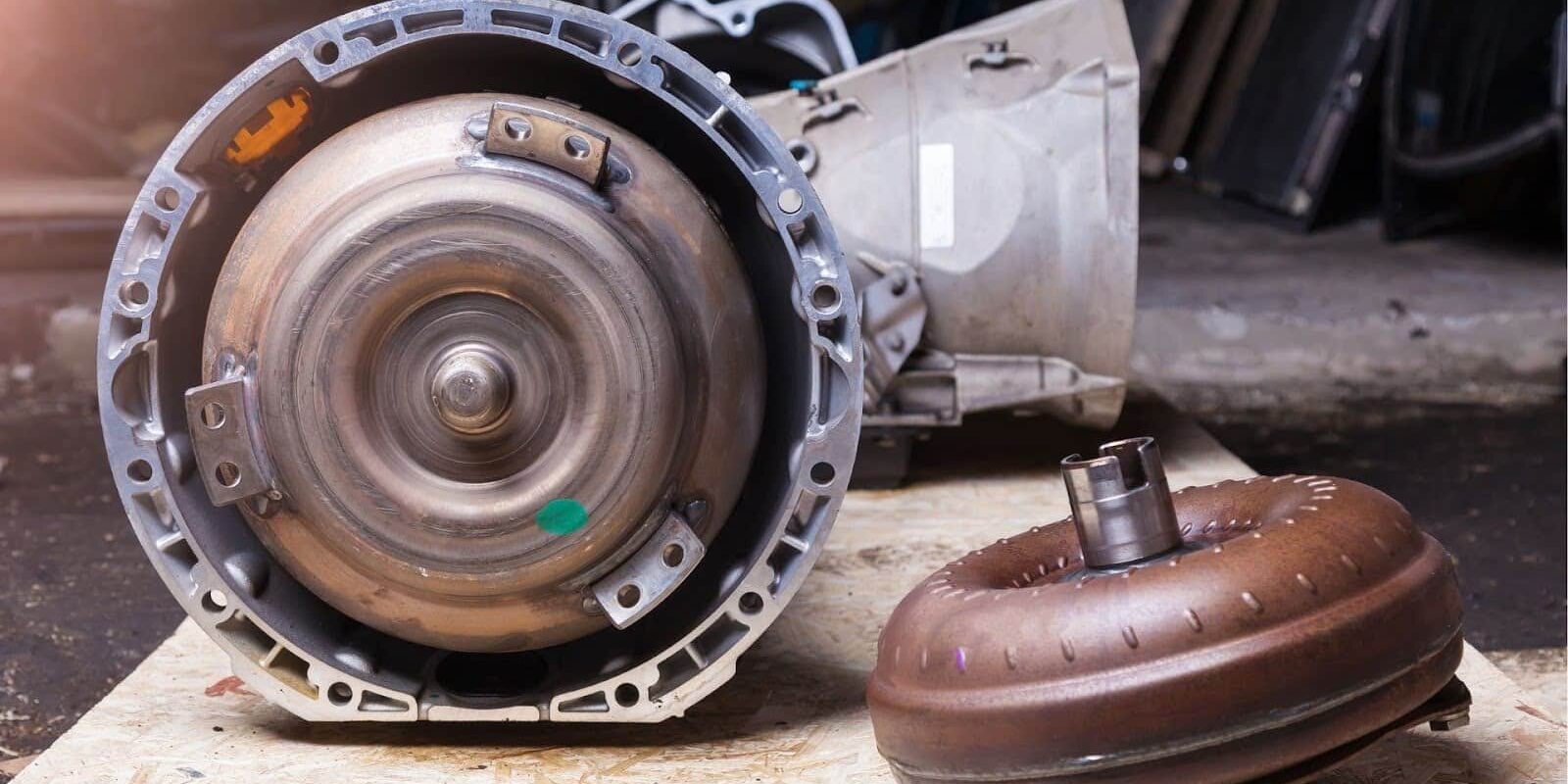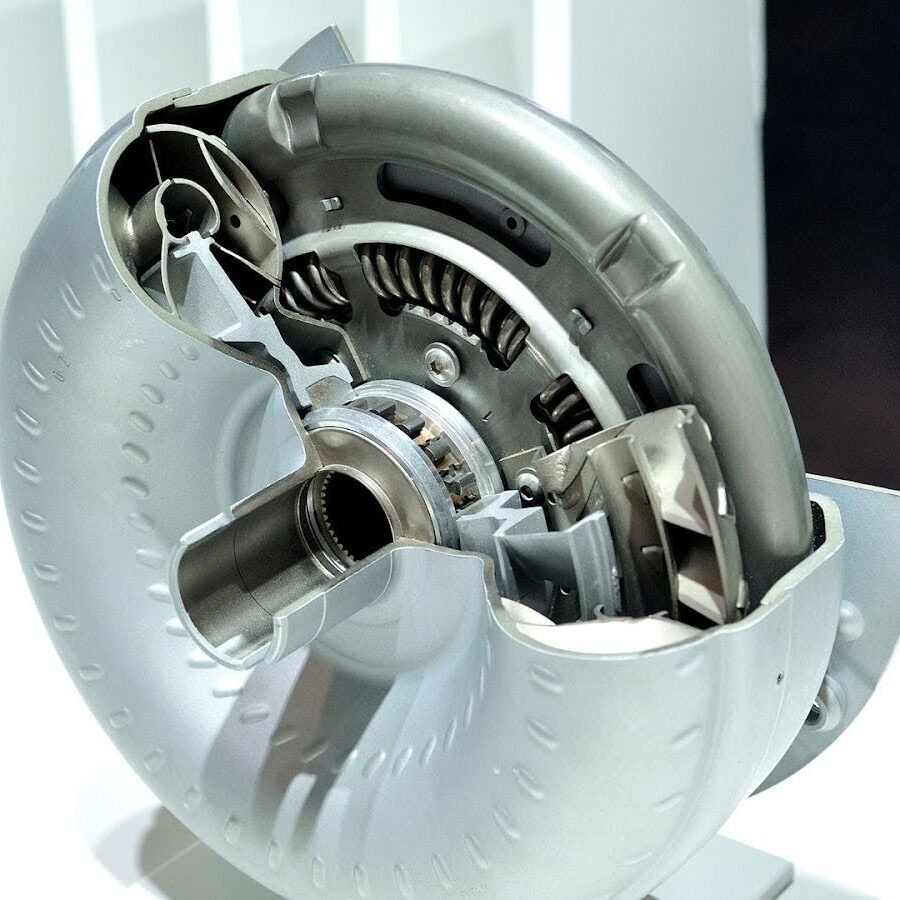Modern & Traditional Torque Converters - Service You Can Rely On!
California Transmission is celebrating 30 years in business! We are and always have been committed to excellence and are thriving on our reputation for QUALITY. We understand services ALWAYS come first, so we test and balance our torque converters before every application.

How Can California Transmission Help?
- We conduct thorough inspections to identify any problems with the torque converter, such as - slipping, overheating, or unusual noises.
- We ensure that your transmission fluid is at the optimal level and free of contaminants. This is because proper fluid is essential for the torque converter to function correctly. If there’s any issue - we will replace it!
- If your torque converter is malfunctioning, we offer repair services or, if needed, a complete replacement to restore the driving performance.
- They provide maintenance services to keep your transmission and torque converter in optimal condition, preventing future issues and extending the lifespan of your vehicle.
The plus point is - we offer free advice on how you can maintain your transmission system. Thus ensuring your torque converter continues to function effectively for an extended period.
Services We Offer
Here’s what you get with us -

Torque Converter Inspections
Not sure what’s wrong with your converter? Don’t fret! Our torque expert helps you with whatever issue you might be facing. We identify the problem and recommend the right solution to get you back on the road.

Torque Converter Rebuild
Sometimes, a full replacement isn’t necessary, especially with modern torque converters. So, we rebuild your torque converter to restore your unit to a new-like condition. We ensure that your torque converter delivers smooth performance and extended reliability - all at a fraction of replacement costs.

Torque Converter Replacement
When repair is not the solution - we recommend replacement. We match your vehicle’s compatibility to the correct high-quality replacement unit, ensuring enhanced power delivery and function. We promise to have your car driving like new again - and we back our work with warranty options.

Performance Torque Converter Upgrades
Our performance torque converter upgrades are perfect for towing, racing, or spirited daily driving! We help you choose the right stall speed and design that suits YOUR needs, giving the torque multiplication and efficiency you desire.
Benefits Of Torque Converter
- Keeps the engine running even when the vehicle is stopped
- Boost power during acceleration, making starts smoother and stronger
- Eliminates the need for clutch pedals, offering an easier, more relaxed drive
- Deliver seamless engine power to the transmission without needing manual input
- Adjusts power delivery based on driving conditions for better performance and fuel economy
What is a Torque Converter?
A torque converter is one of the most important components in automatic transmissions that transfers torque from the engine to the transmission input shaft. Unlike a manual transmission, where the engine could stall if you stop without pressing the clutch, the torque converter keeps the engine running even when the car isn’t moving.
That’s why you can sit at a red light or in heavy traffic without worrying about stalling out. A huge advantage of a torque converter is torque multiplication. This means it boosts the engine’s torque when you’re starting from a dead stop. Hence, the reason why your car feels so much smoother and quicker pulling away from a parking lot or a driveway.
Features Of A Torque Converter
- Fluid coupling between engine and transmission
- Automatic torque multiplication during acceleration
- Allows engine to stop without stalling
- Smooth gear shifting without manual intervention
- Dampen the vibration for smoother rides
- Adapts power delivery to driving needs
How A Torque Converter Works?
Impeller and Turbine
The torque converter consists of three main components -
- the impeller
- the turbine
- the stator
The impeller is connected to the engine’s crankshaft and is responsible for driving the fluid inside the torque converter. As the impeller spins, it creates fluid movement within the torque converter.
Fluid Transfer
The fluid driven by the impeller is directed towards the turbine, which is connected to the transmission input shaft. The fluid movement causes the turbine to spin, transmitting torque to the transmission.
Stator
The stator is positioned between the impeller and the turbine and serves to redirect the fluid flow. It ensures that the fluid leaving the turbine is directed back towards the impeller in a more efficient manner, enhancing torque multiplication and improving overall efficiency.
Torque Multiplication
One of the key functions of a torque converter is torque multiplication. When the vehicle is stationary or moving at low speeds, the impeller is spinning faster than the turbine due to the fluid momentum. This speed difference creates a multiplication effect, allowing the torque converter to transmit more torque to the transmission input shaft than is being applied by the engine. This helps the vehicle accelerate smoothly from a stop or at low speeds.
Lock-Up Clutch
In modern torque converters, there is a lock-up clutch mechanism that engages at higher speeds to create a direct mechanical connection between the impeller and the turbine. This reduces the slippage that occurs in traditional torque converters, improves fuel efficacy, and generates low heat.
The torque converter in automatic transmissions provides smooth torque transfer between the transmission and the engine. This allows the vehicle to operate smoothly under various driving conditions.
Don’t Hesitate To Call Us For Torque Converter Issues. Get In Touch With California Transmission Now!
It becomes really challenging to enjoy the optimal functioning of your vehicle if the torque converter is not working properly. If you notice any signs of trouble - don’t wait! Schedule a service with the experts at California Transmission.
We take care of every repair and service with the precision, care, and quality your vehicle deserves. After your visit, your vehicle will feel like new - you’ll hardly remember there was ever an issue!

How much is it going to cost? Get A Quick Estimate Now!
Frequently Asked Questions
Don't Just Take Our Word For It
We believe in delivering honest and professional automotive repair and auto maintenance services. Check out what our clients have to say!
Had the vehicle towed to Joe's shop and had a diagnosis the same day with work completed all in one day. Price was as stated, schedule was quicker than expected.
Highly recommend, will return for further work that may be required in future.
I will definitely be coming back here for future service as they were polite, professional and honest with the expectations. Always happy to be able to support local Orangevale businesses whenever I can.


